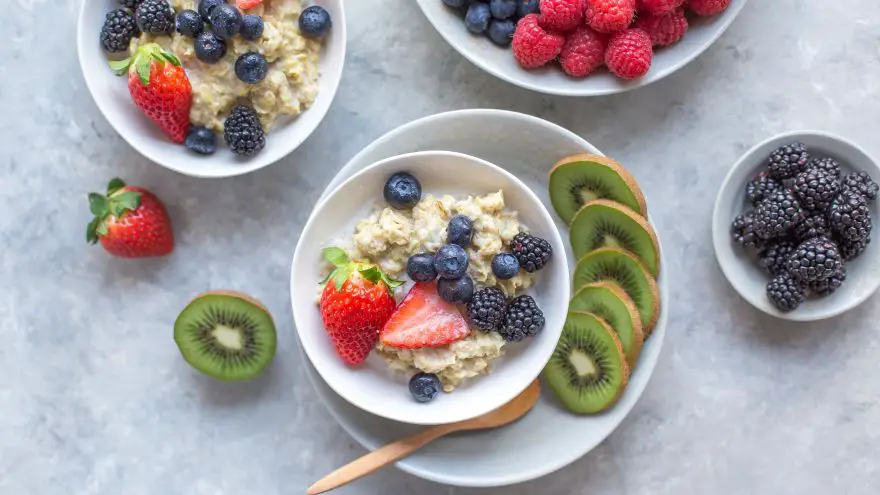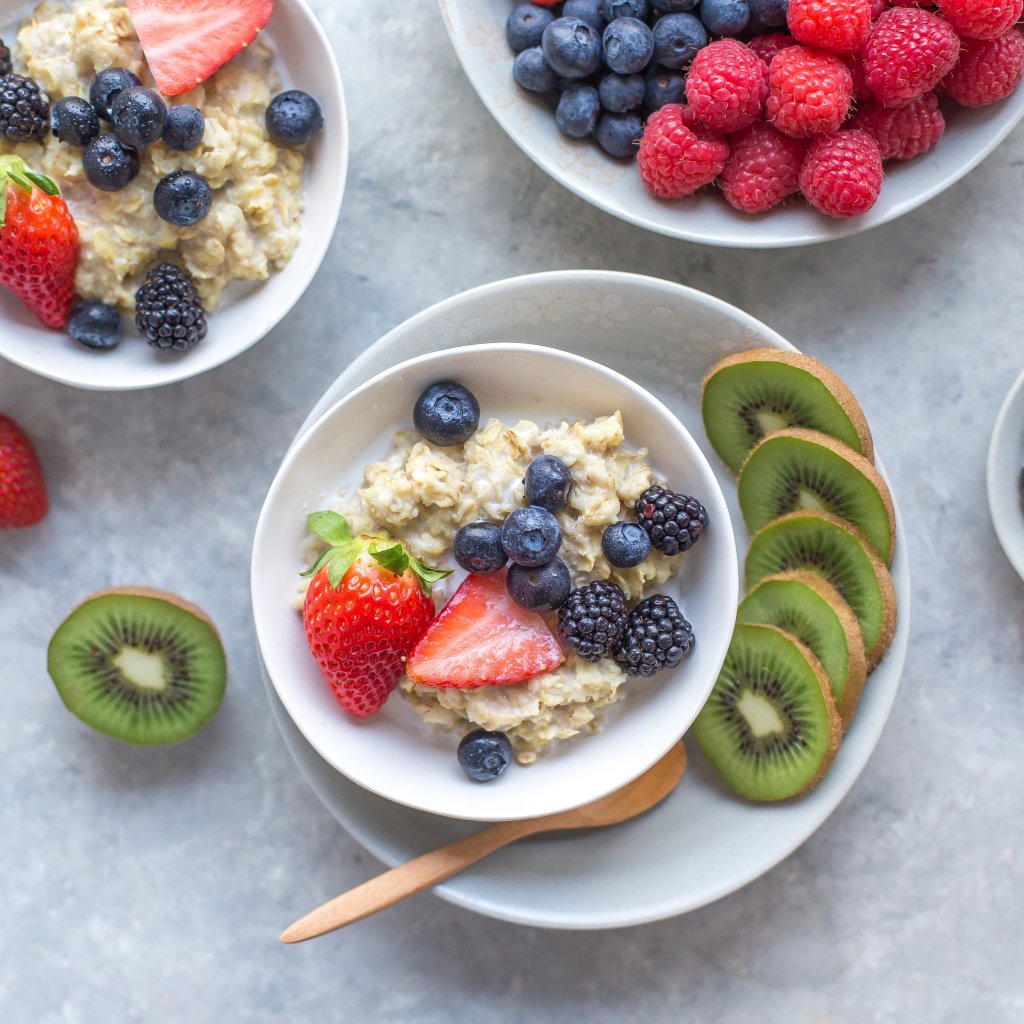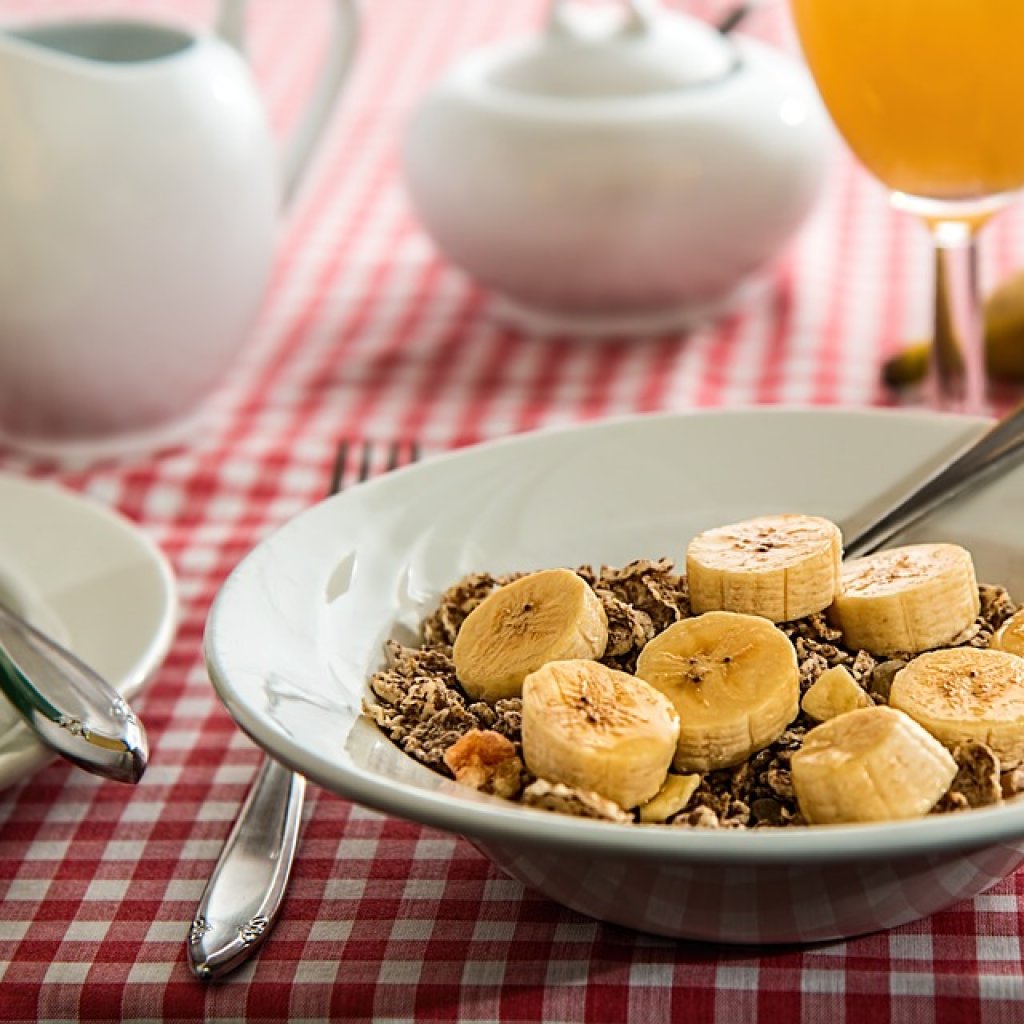6 Benefits of Fiber and How to Get More in Your Diet
 6 Benefits of Fiber and How to Get More in Your Diet
thegearhunt.com
6 Benefits of Fiber and How to Get More in Your Diet
thegearhunt.com
Every doctor and other health care professionals out there will tell you that you need more fiber in your diet. It is said to provide many benefits for your body and even your mental state of mind. If you watch the news or keep up with the latest health trends, then you already know that fiber is the new health buzz word. This buzz word, however, might not be just a passing trend. It turns out that fiber is actually a very good thing to have in your body and can bring you a ton of health benefits, you might not have even thought of. In this blog, we’re going to go into a few of the benefits of adding fiber to your diet, some signs you need more of it, how to add it to your diet, and even a few of the dangers of too much of this good thing. Ready to get started? Then, pull up a chair, grab something with fiber in it, and let’s delve together into our blog on the benefits of fiber and what it can do for you, plus some foods that have the fiber you need as well.
Signs that You Need More Fiber in Your Diet
A diet that is low in fiber can cause quite a few different digestive health issues, as fiber helps the body to move foods through the digestive tract at a normal rate. If you have any of the signs below, then try increasing your fiber and see if that fixes the problem, if it doesn’t it might be time to contact your doctor and go in for a checkup.
You’re Always Hungry
The fiber in the foods you eat trick the body into thinking it’s full. If you’re eating foods that are filled with fiber, your digestive system is going to stay full longer, meaning you’ll eat fewer meals and snacks. People who aren’t getting enough fiber in their diet, very often report that they are hungry all of the time, sometimes even after they have just finished eating. If this is you, then try adding foods with more fiber to your diet. Fiber is also said to help with curbing cravings and snacking constantly between meals as well.
You Become Drowsy Right After You Eat
Eating a big meal can often make you drowsy, and have you falling asleep on the couch during the big game instead of watching it. This is because of the glucose levels in your body dropping after you eat. Fiber can help to combat that drowsy feeling and the glucose drop also. Meals that are high in fiber can help to keep you awake and alert after that Thanksgiving dinner.
You’re Gaining Weight
Of course, there are many factors that contribute to weight gain, too many to go into here, however, lack of fiber is certainly one of them. A lack of fiber in your diet can cause you to gain weight because the food isn’t moving quickly through your digestive system.
You’re Constipated
The main role of fiber in a diet is helping your food move through the digestive tract smoothly and easily. If you find yourself being constipated more than normal, you may need more fiber in your daily diet.
You’re Bloated
Foods that are low in fiber tend to sit in your gut for longer periods of time, making you bloated and miserable. Being bloated frequently is a sure-fire sign that you have too little fiber in your diet.
Now that we know a few of the signs that you need to add more fiber to your diet, it’s time to move into our section on the benefits that adding fiber to your diet can bring you.
Health Benefits of Fiber
Many people already know that fiber helps with regular bowel movements and even that it is helpful for weight loss. However, there are other benefits, among these, that need to be discussed.
Lowers Your Risk of Heart Disease
Studies have shown that for every seven grams of fiber eaten, the risk of developing heart disease decreases by nine percent. If you think about it, that’s quite a percentage and well-worth adding fiber to your diet for. The reason for this is that fiber sops up the bad cholesterol in your body and gets it out before it has time to clog up your arteries, which can lead to a heart attack.
Helps You to Lose Weight
Even just increasing your fiber intake will help you to lose those unwanted pounds. Studies showed that increasing fiber worked better than many of the complicated diet plans out there to help people shed those pounds safely and efficiently. Not only does fiber fill you up faster, it also helps to shed those access calories that settle around the stomach and hips when they have nowhere else to go.
Helps to Maintain that Healthy Weight
Anyone who has ever struggled to lose weight knows that losing it is only half the battle. You have to maintain that healthy weight as well. Studies have shown that people who have a higher fiber intake re overall leaner. So, once you lose those pounds, then you’ll be able to stay healthy and lean by just taking your fiber every day.
Helps You to Live Longer All Around
Recent studies performed by scientists have shown that people who eat cereal with fiber in it have a lower death rate on average. The average is 17 to 19 percent, making eating a cereal that has fiber in it a no-brainer for us.
You Will be More Regular
Most people already know this, but it still bears saying. When you have the right amount of fiber in your diet, you are going to have regular bowel movements, which will help you feel 110 percent better in the long run.
Can Steady Your Blood Sugar Levels
Eating an improperly balanced carb-heavy meal that raises your blood sugar levels, leaving you feeling foggy and super tired. Maintaining a healthy blood sugar level is extremely important, so adding a fiber-rich item to your carb-heavy meal can help to level those blood sugar levels and leave you feeling clearheaded and ready to take on the world.
Other Health Benefits of Fiber
- Keeps your colon healthy
- Reduces the risk of developing hemorrhoids
- Makes gut bacteria healthier
- Helps to prevent certain types of cancer
- Gives you healthier bones
- It’s an all-natural detox
- Cuts your risk of developing type 2 diabetes
- And much more
These are only a few of the top health benefits out there of increasing your fiber intake, there are more being discovered every day. For more information on what fiber can do for you, do your research online or talk to your primary health care doctor. Now, join us as we move into the section of our blog that talks about the foods you can eat that will help you increase your fiber intake.
Ways to Increase Your Fiber Intake
Have you ever wondered if you were getting enough fiber or what foods you should eat to increase your daily dose? We will discuss those foods in the section below.
Pears
It is estimated that eating one pear gives you the benefit of five grams of fiber. From blending them in a smoothie to eating them by themselves or making them into a sandwich, they taste great and juicy, plus they give you your fiber intake.
Raspberries
There are very few people who don’t love a good juicy raspberry. You can eat them by the handfuls. The great thing about these little healthy treats is they contain little seeds that make them the perfect source of fiber. They are low-calorie and one cup gives you eight grams of fiber. You can eat them by themselves or sprinkle them on your yogurt or cereal.
Oatmeal
Nothing makes you feel warmer than a fragrant bowl of oatmeal on a blustery winter’s day when the snow is piling up outside and the temps are hovering just above freezing. The great thing about it, other than the taste, is that the oats in the oatmeal are lowering your bad cholesterol. A bowl of oatmeal lets you start the day with four grams of fiber and if you add a banana to the mix, it will give you another three grams so you can start the day off right.

Artichokes
Okay, so many people don’t like the taste of artichokes, but these little foods give you a whopping 10 grams of fiber and are only 65 calories each. Spice them up in whatever way you want but they are the perfect on the go snack for someone on a diet.
Green Peas
Another food that many people turn their noses up at is a scoop of green peas. However, these little round peas carry nine grams of fiber per cup. Add them into your recipes or just down a cup for a little fiber in your diet.
Whole-Wheat Spaghetti
While most people tend to use normal pasta for their spaghetti, whole wheat pasta actually has more fiber. Replacing your regular white pasta with a good whole-wheat pasta can give you twice as much fiber. You get six grams in one cup of whole-wheat spaghetti, meaning you’re adding not only fiber but grains to your diet as well.
Almonds
Who doesn’t love the crunchiness of a good almond? Adding almonds to your diet as a snack can give you four grams of the fiber you need every day. This is for one ounce of almonds or 24 of the tasty nuts. If you pair almonds with a pear or some raspberries, you’ll be well on your way to your required daily intake of fiber.
Beans
If you love beans, then you’re certainly in luck. One cup of beans can provide you with 12 to 19 grams of fiber. What’s so great about beans is that there are so many varieties to choose from and so many ways you can prepare them that it rarely gets old.
Bulgur
If you’re like us, you’ve never even heard of this, but the fact that it contains eight grams of fiber per cup is a good reason to recommend it.
Winter Squash
Winter squash is something that’s good no matter what time of the year it is, but it’s also chockful of six grams of fiber as well. Fix it up in a warm stew or fry up a batch, either way, it’s yummy and great for you.
Popcorn
Popcorn? Really, you might say. Yep, really. Popcorn has four grams of fiber per every three cups and has just 90 calories when its air popped. Of course, that doesn’t mean it’s still good for you if you add a ton of butter but just saying.
These are just a few of the best ways to get the fiber that you need in your diet every day. Now, it’s time to go into the dangers and side effect that could come from adding too much fiber to your diet.
Dangers of Too Much Fiber in Your Diet
- Constipation
- Nutrient malabsorption
- Bloating and gas
- Abdominal cramps
- Blockages in the intestines
- Acid Reflux and GERD
- Dehydration
If you feel that you have actually been taking in too much fiber, it’s time to contact your primary health care provider. You should stop eating foods with fiber in them until you go to your appointment. As with any other changes you make to your diet, it’s best to talk to your doctor before making them.
This concludes our blog on the benefits of fiber and a few other things you should know. Until next time, happy trails, everyone!
Sources:
- Food Network: 11 Ways to Get More Fiber in Your Diet
- Nutrition Advance: 7 Problems Caused by Too Much Fiber
- Health Prep: 5 Signs Your Body Needs More Fiber



















